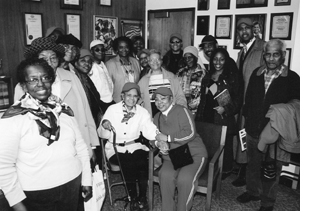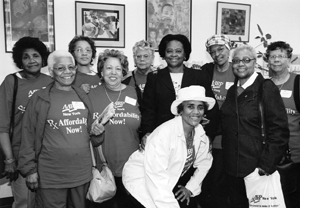Dear Neighbors:
The 228th Legislative Session officially began on January 5, 2005. This legislative year has been both challenging and rewarding. I am pleased to report that the Assembly and Senate passed a fair, on-time, bipartisan budget. The $105 billion spending plan ensures quality health care and increases state aid to local schools while easing the burden on local taxpayers and providing much needed services to New York State residents. We are pleased that through our comprehensive efforts to reform the Legislature we were able to work with joint conference budget committees and open public deliberation to pass the first on time budget in 20 years. I am also pleased that I have been able to secure substantial funding for economic development and infrastructure projects, schools, libraries and various organizations in the district. As your representative, I endeavor to make sure Southeast Queens receives its fair share of state funding and services to help improve the lives of all of our residents.
I am pleased to report that I have been appointed Majority Whip by Speaker Sheldon Silver and assigned to serve on the powerful Ways and Means and Rules Committees and the Sub-Committee on Insurer Investments and Underserved Areas. The Majority Whip plays a crucial role in the advancement of the Assembly Legislative Agenda. The Ways and Means Committee is the largest committee in the Assembly, comprised of 35 members. This committee considers all legislation that would have fiscal implications for the State before it can be voted on by the complete Assembly body. The Rules Committee is unique in its functions. It has the responsibility of considering and introducing legislation; reviewing each message of necessity issued by the Governor, and regulating housekeeping practices of the Assembly. The Subcommittee on Insurer Investments and Underserved Areas will operate under the Insurance Committee. I remain a member of the Codes, Housing, and Insurance Committees, the Committee on Corporations, Authorities and Commissions, and the Majority Steering Committee. I am very pleased to serve on these committees as my service gives me an opportunity to consider and analyze important legislation that will in some way impact on those I represent.
Please continue reading this report as it contains highlights of the New York State Budget, the New Minimum Wage Law, the new law protecting college students from credit card debt and information on the Health Care Proxy. While we have passed hundreds of bills in the Legislature, they must be signed by the Governor before becoming law. Please watch for my next newsletter which will contain highlights of the new laws of 2005. Should you need additional information regarding this newsletter or if you are in need of any other assistance, please feel free to contact me at (718) 322-3975.
In closing, I would like to congratulate the graduates of 2005. I wish you the best in all that you aspire to do. I hope you have a safe, happy and enjoyable summer.

|
Member of Assembly




